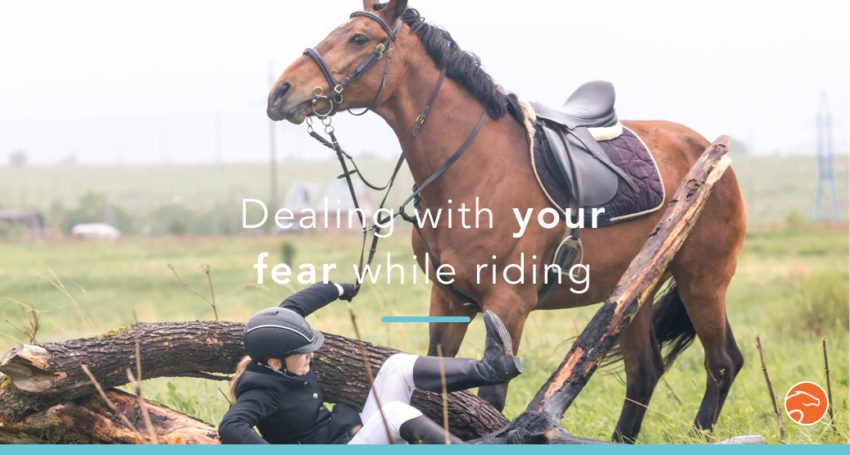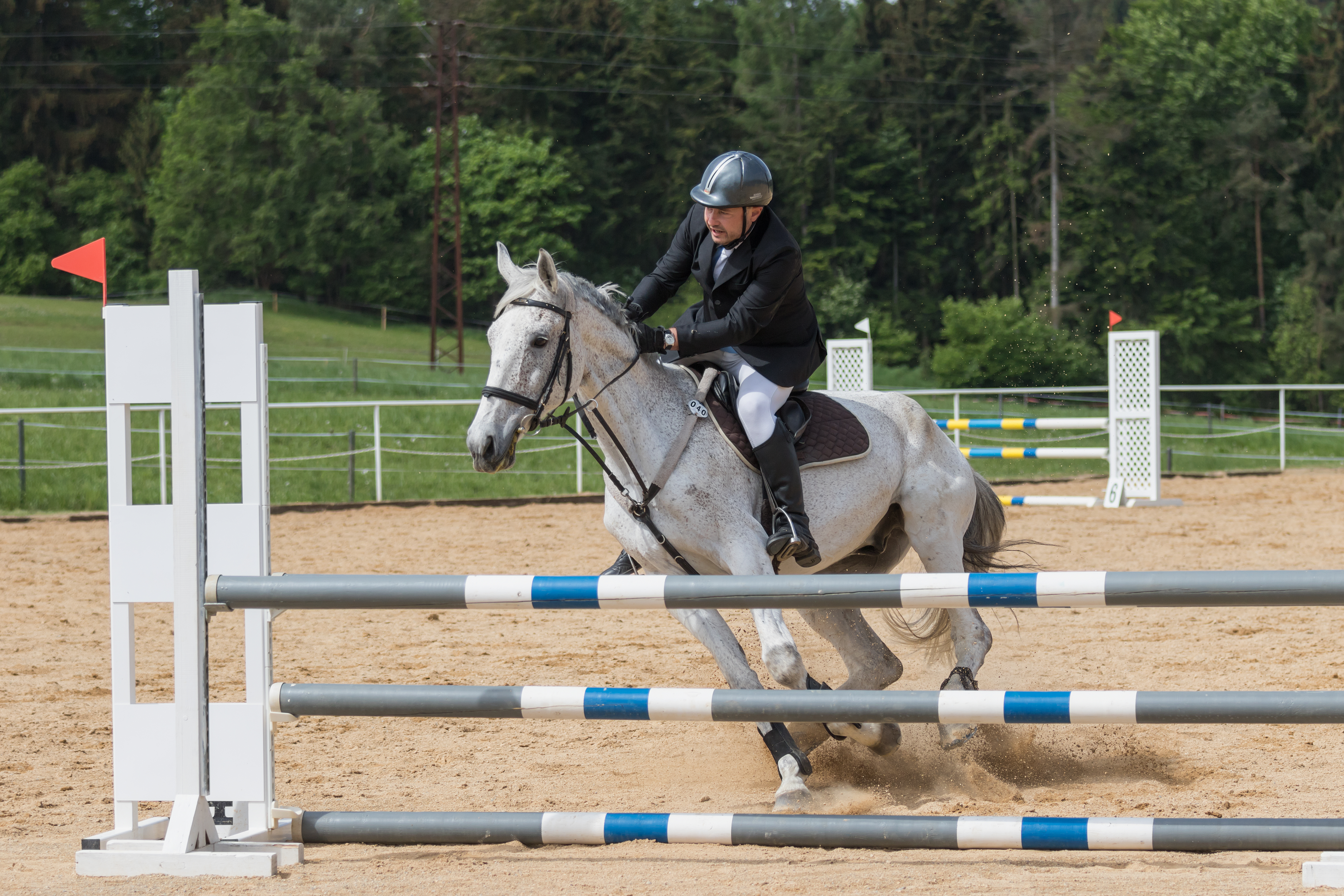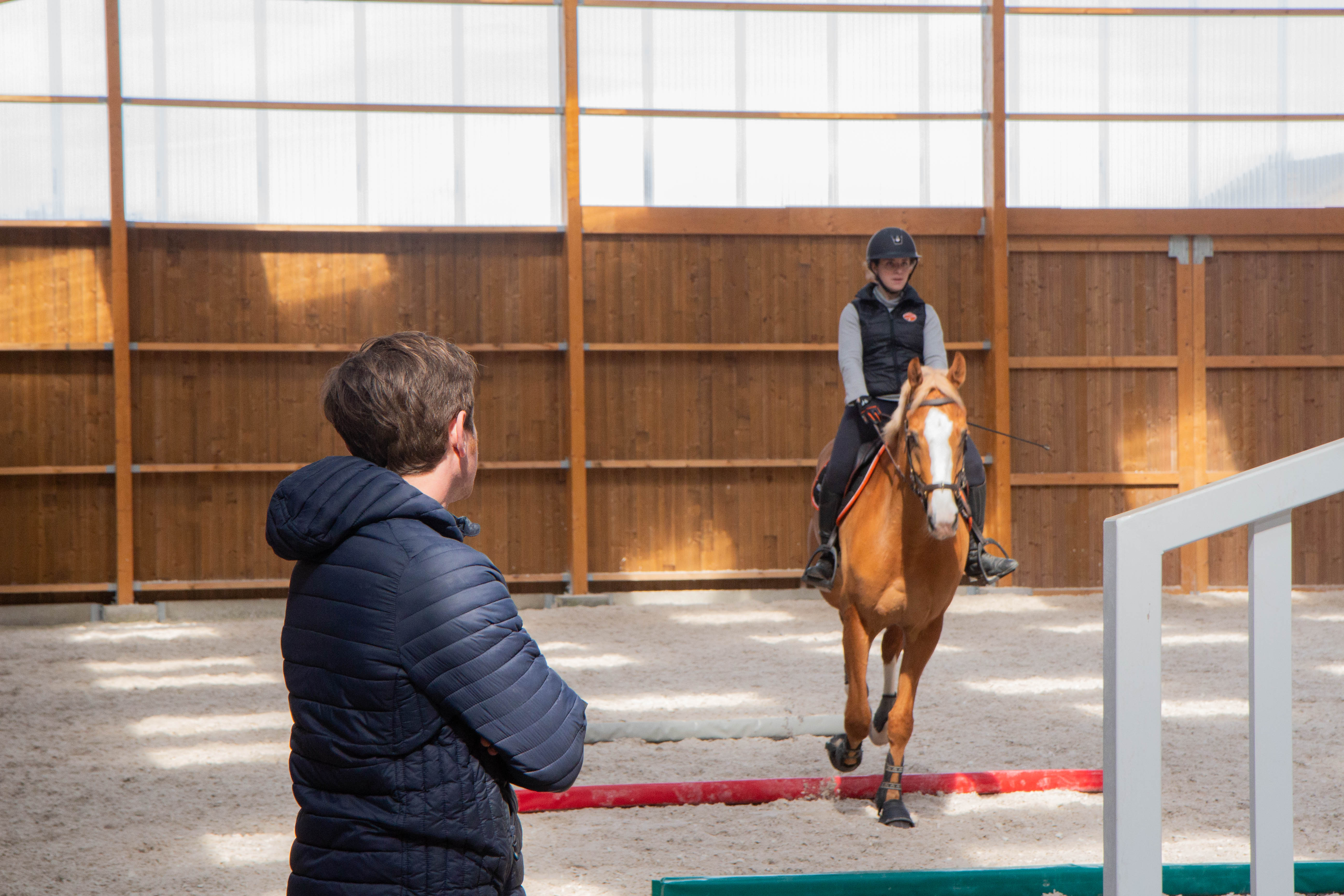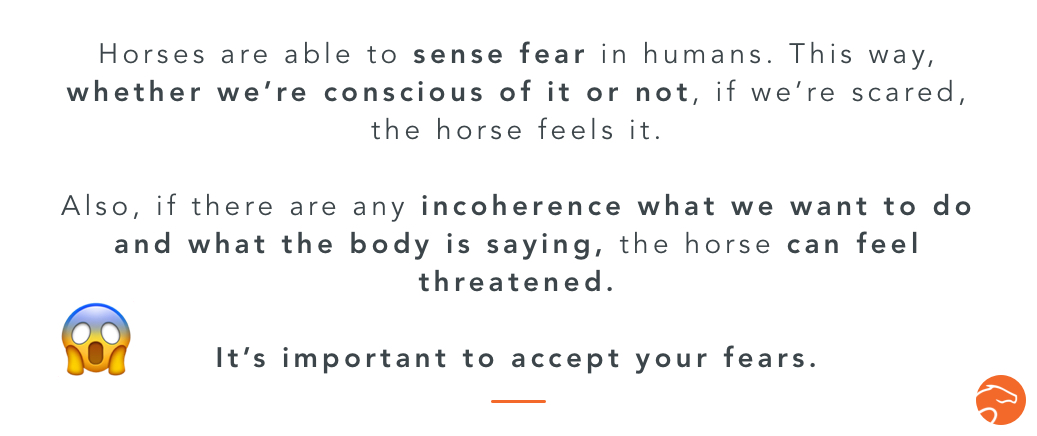
I’m Scared when I Ride: What can I do?
Let’s face it: we’ve ALL been scared of riding one day. Scared to canter, scared to go hacking, scared to jump this huuuuuge 95cm oxer, scared of this horse everyone falls off. Or scared to enter the show arena, scared right before the cross country course, scared that our horse will be scared of the flower pot during your dressage test. To put it in a nutshell, there are a LOT of fears. Sometimes it’s easy to handle, sometimes less. Sometimes it gives us a boost, and sometimes it freezes us. So let’s talk about it.
To talk about this very specific topic, I was helped by Audrey Blumenfeld. She owns stables near Paris, and most of her time is dedicated to help riders regain confidence in themselves when they are scared. I want to thank her for the great discussions we had on this topic.
Table des matières
What is fear?
Fear is an emotion, probably the oldest of animal life, triggering a fight or flight response.
When the brain analyzes a situation as being dangerous, the fear mechanism starts and will trigger a certain number of physiological responses to prepare the subject to run away and/or protect itself. Fear also makes the body release a high dose of adrenaline, which will:
- increase the heart rate to bring more oxygen to the muscles
- increase the respiratory rate
- dilate the pupil to register more information
- trigger an unusual sudation followed sometimes by a smell more or less strong (yum)
In addition to these signs, we can count the sensation of a knot in the stomach, the sensation of a tight throat, muscles tense and stiff…
In fact, fear shouldn’t be considered a negative emotion, because it’s one of the phenomenon most species owe their survival to. Indeed, if in the savanna, zebras weren’t afraid of lions, I’m not sure they’d still exist today. 😅
Fear is a contagious emotion
What’s interesting about fear is that it’s transmitted from one subject to another, and even across species! Indeed, the horse’s gregarious instinct linked to their survival instinct makes it so that, if a horse is afraid and starts running, every horse nearby will follow and run away as well.

This phenomenon also happens across different species, which means if an antelope hears a strange noise and its fear dictates that it should run away, there are a lot of chances every animal nearby runs as well.
So let’s return to our concrete case: if you’re scared, your horse will be scared as well… The same way, if you horse suddenly stops while hacking, with its head high, ears forward, and you can feel its heart beating between your legs, you’re most likely to start being scared as well… you’ll start imagining what can be that scary. 🤯
Horses identify our emotions better than we do
Let me tell you a story. In september 2017, I was invited to participate to a discussion at the Haras de la Cense. At the end of the day, only the speakers were left, and among them Thierry Lhermite, a French actor, and Andy Booth. We started talking about how horses react to our emotions.
Andy Booth was telling me that animals detect emotions in other animals well, even other species. For instance, he was saying that it isn’t rare in the wild to see around the same water point lions, or any other carnivore, and zebras or other herbivores at the same time. You’re probably thinking this contradicts what I wrote a few lines above. But no. The thing is, a lion hunting doesn’t behave like a lion just coming for a drink. And this, the preys can detect.
What you have to keep in mind here is that horses can read other species emotions. So they can read our emotions. So even if you aren’t conscious of it, if you’re scared, your horse feels it…
The problem isn’t fear in itself, it’s to be unaware of it…
So what causes problems isn’t fear as such, but to be unaware of your fear and/or to ignore it completely. Because yes, it’s possible to not feel fear even if it exists. It’s a form of denial. But denial or not, the horse will feel it anyway!
In which case, this creates a conflict between what you think/want to do and what your body expresses. This paradox, this incoherence, the horse will feel it and interpret it as a sign of danger. And… it will run away.
So denying your fear can in the end aggravate your horse’s strong reactions.
There are 2 types of fears
Once you recognize and accept this fear, you realize there are 2 different types of fears:
- mental fear (fear of failure, what will people think, … ex: stress during shows)
- real danger fear (fear of an accident, or a situation considered dangerous, … ex: fear of jumping higher fences)
Let’s look at both.

1️⃣ Mental fear
This fear is actually specific to men. This fear doesn’t mean you’re dreading an accident, it’s more like stage fright, vulnerability.
The first solution here is to accept it, and to put your ego aside. You will solve this issue with mental preparation. Exactly like actors and high level athletes who learn how to handle their stress with breathing exercises.😊
📚 Learn more: How to handle stress
2️⃣ Real danger fear
Dans ce cas là, la peur naît d’une situation très concrète. C’est souvent lié à une chute ou un accident qu’a vécu ou vu le cavalier. Ça va être par exemple la peur de la hauteur à l’obstacle, la peur de galoper, la peur en extérieur …
In this scenario, fear is born from a very concrete situation. It’s often linked to a bad fall or an accident the rider lived through or saw. For instance, fear of high fences, of cantering, while hacking.

The hardest part is to accept this deeper fear. We often try to deny it, bury it far away, because of our ego and crowd pressure.
“All of my friends register on 130m classes, so I have do enter 130m classes as well, especially since my horse can do it. If I don’t, I’ll be mocked. But frankly, I’m scared.”
So we try to repress this fear, to do as we’re told, or like our friends. The problem is that the ego / fear conflict leads to an accident.
What can I do to fix this? 🙏🏻
In this situation, the first step is to accept your fear and put words on it. You have to work on yourself, and clearly identify the fear, to be able to talk about it frankly.
Then, faced with this fearful situation, ask yourself the question “What do I fear?”.
To this, you can answer for instance “I’m afraid I’m going to mess up the approach, we’re going to crash into the fence and we’ll both be hurt”. You’ll then ask yourself “What can I do to appease this fear?”.
You’re going to try to look for a solution for you to be safe. In this case, you can say “I’m going to get something I can hold on and get an air bag protective jacket”.
Start over this questioning again “What about now, what do I fear?” then “What can I do to appease this fear?” and try to find solutions to feel safe at each step.
Get some help! 🤗
You understood it, the answer to this situation is safety first. Don’t hesitate to register in a lower level and redo everything step by step.
As you go, fear is going to fade away, you’ll start regaining trust in yourself, and you can climb the steps once more!
This can be pretty long, or short. Depends on the goal you set. It also varies from one person to another. The hardest part of all this is to accept your fears and put your ego aside…

Fear is also our friend 🤜🏻🤛🏻
Yes, fear is a precious ally you have to learn to use. It’s this fear which will make us go “No, I won’t ride this horse now, I’m going to lunge him first so he can let out his energy, and then we’ll see.”
“Better safe than sorry.”
Let’s take another example: the paratrooper about to jump into a warzone.
Of course he’s scared of jumping at 3am, in pitch darkness, to land into a hostile terrain! But he uses this fear to his advantage. This fear is going to push him to check every element to make sure everything is right, nothing is tangled… His fear will allow him to jump without risking his life.
So be more like paratrooper. Don’t fear your fear and use it for its positive aspects.
Force and violence are no solution 🤬
Unfortunately, we often live or hear as a child situations like “Are you scared? I don’t want to know about it. You get back on this horse’s back and you start again”. However, violence or strength have no place in solving fear. It’s true for you as a rider, but also for your horse.
The more you work with your horse, the better it is. A rider doesn’t learn how to jump 130cm with someone yelling at him. And the same goes for the horse.
Keep this in mind: it’s normal to be scared. Everyone is. So put your ego aside, accept it, say it, and don’t let anyone use strength or violence to go over this fear. Rather, use every solution you find which will make you feel safe during this stressful situation, try to do easier things for a while, and you’ll learn to master this fear.
I hope this article helped you. I really loved writing it, and I think this topic is fascinating!
See you soon,
Camille Saute
Equisense Cofounder
Bibliography:
Peur. (2018). Retrieved November 9, 2018, from Wikipédia website: https://fr.wikipedia.org/wiki/Peur
Dhont, S. (2018, November). En finir avec ses peurs. Cheval Pratique, 344, 60–65.



